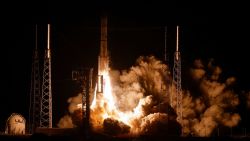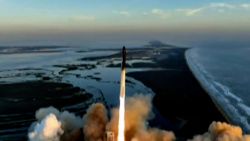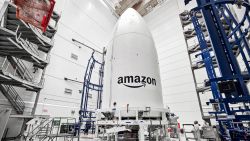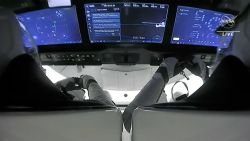Jeff Bezos’ rocket company, Blue Origin, is taking over a historic NASA facility — and it’s only the latest example of a private “new space” company slapping its logo on former space agency territory.
NASA said in a press release Wednesday that it signed an agreement for Blue Origin to use its rocket engine test site in Huntsville, Alabama. The deal “signals rocketing growth of commercial space,” NASA said in a statement.
The Huntsville site once hosted tests of the massive engines that powered the Saturn V rocket, which landed astronauts on the moon a half-century ago. It was later used to test engines for NASA’s space shuttle program. The facility has been dormant since 1998.
“Through this agreement, we’ll provide for the refurbishment, restoration and modernization of this piece of American history — and bring the sounds of rocket engines firing back to Huntsville,” Blue Origin CEO Bob Smith said in a statement.
Under its new agreement with NASA, Blue Origin will pay to refurbish the Huntsville engine-testing facility. The company will use the site to test-fire two rocket engine models that promise to be game-changers for the commercial rocket industry, and will be built nearby.
They’re designed to power Blue Origin’s forthcoming New Glenn rocket, a massive launch vehicle designed to send heavy satellites and other payloads to orbit, allowing Bezos’ company to compete directly with Elon Musk’s company, SpaceX.
Blue Origin will also sell one rocket engine model, the BE-4, to old-guard aerospace firm United Launch Alliance. ULA, a joint venture between Lockheed Martin and Boeing, is building a new rocket family called Vulcan. The incumbent turned to its younger rival for a new engine — a move that was celebrated because it will end ULA’s reliance on Russian-made rocket engines.
It’s further evidence that next-generation startups are bringing the US rocket industry roaring back to life after years of stagnation. The signs are already widespread in Florida: A host of private companies are building facilities near NASA stomping grounds, SpaceX has taken over famed Apollo launch site Pad 39A, and Blue Origin built a factory and plans to use an abandoned launch complex nearby.
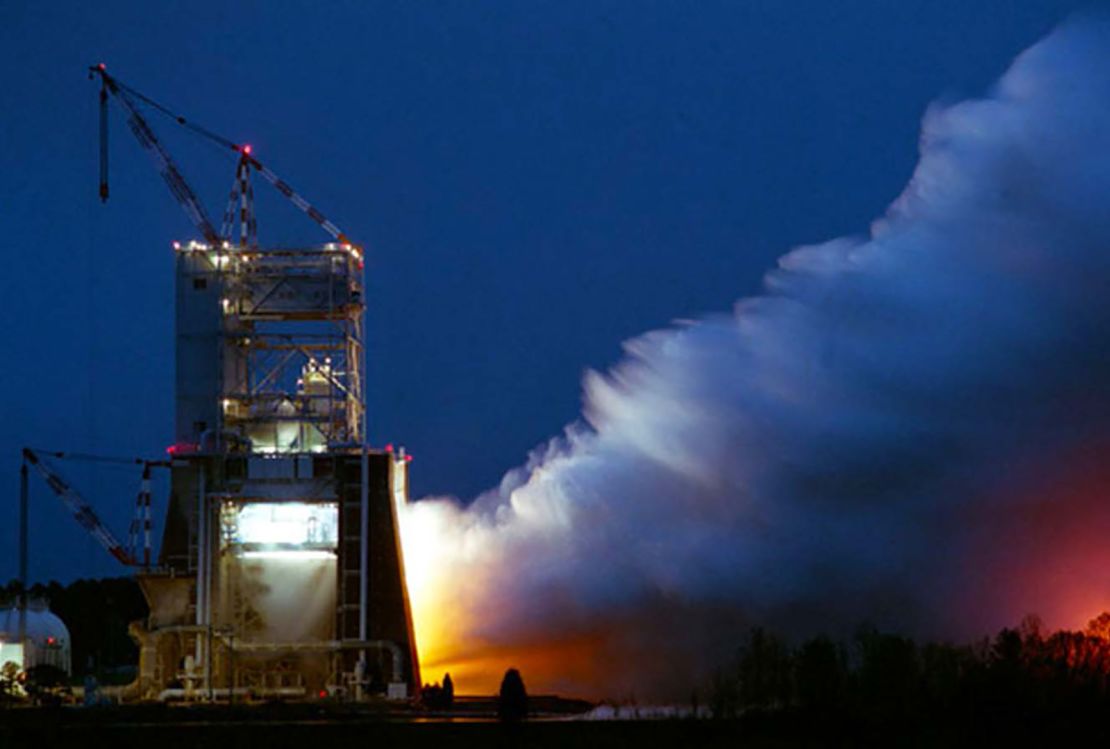
Bezos started Blue Origin in 2000, two years before Musk founded SpaceX. The latter company has dominated headlines over the past few years, while Blue Origin has quietly tested a suborbital rocket that will be used to fly tourists to space. Now, it looks like the company will be ready to start flying tourists in the next few months, and New Glenn is expected to begin flying uncrewed orbital missions in 2021.
Investing money in the same districts where NASA has a presence is considered politically important for private rocket companies to curry favor with key lawmakers in Washington DC.
Meanwhile, NASA has shown a growing appetite to hire private companies to take over some of its duties. SpaceX and Boeing, for example, will soon begin ferrying astronauts to the International Space Station.
The explosive growth of the new space industry in recent years has been welcomed by many in the aerospace community. The United States is approaching the 50th anniversary of the first Apollo moon landing this year, but it has been nearly a decade since NASA last launched its astronauts on a US-made vehicle.
Space Launch System, NASA’s massive new rocket intended for deep-space travel, is years behind schedule and is currently facing more delays and criticism.
Vice President Mike Pence recently pledged to put boots back on the moon by 2024. He said reaching that goal would mean accelerating the SLS program “by any means necessary” — including seeking help from the private sector. Critics have blasted politicians for hyping the moonshot plan without allocating the dollars they say NASA needs to get the job done.




